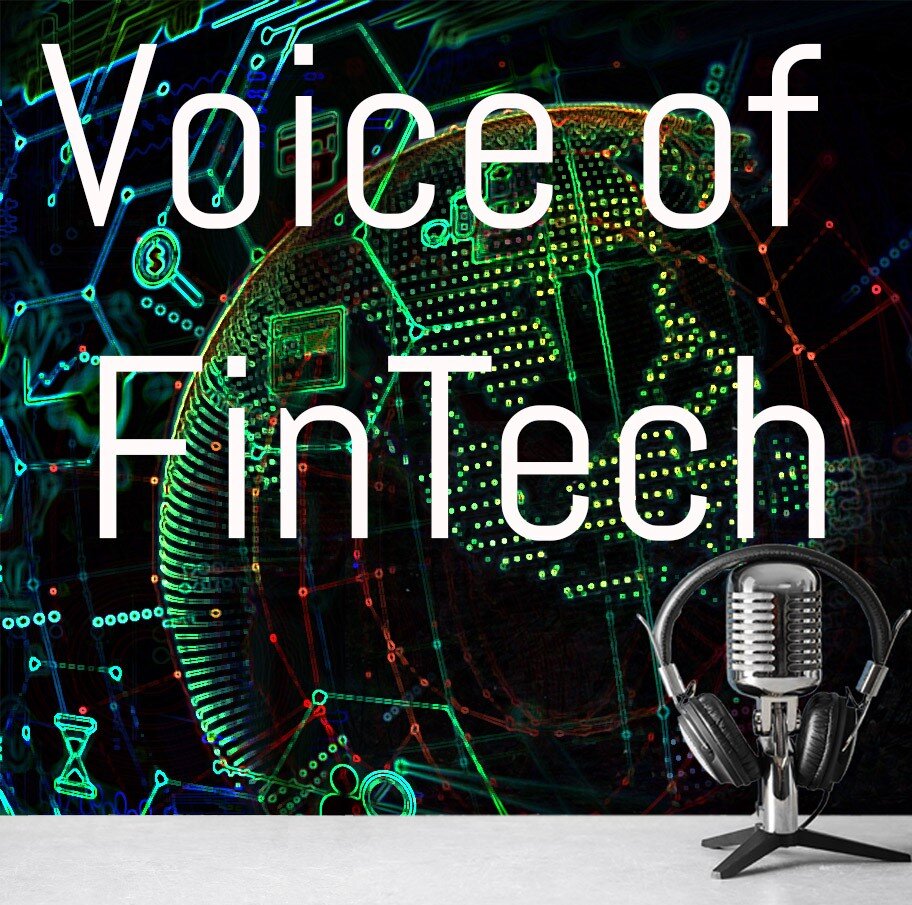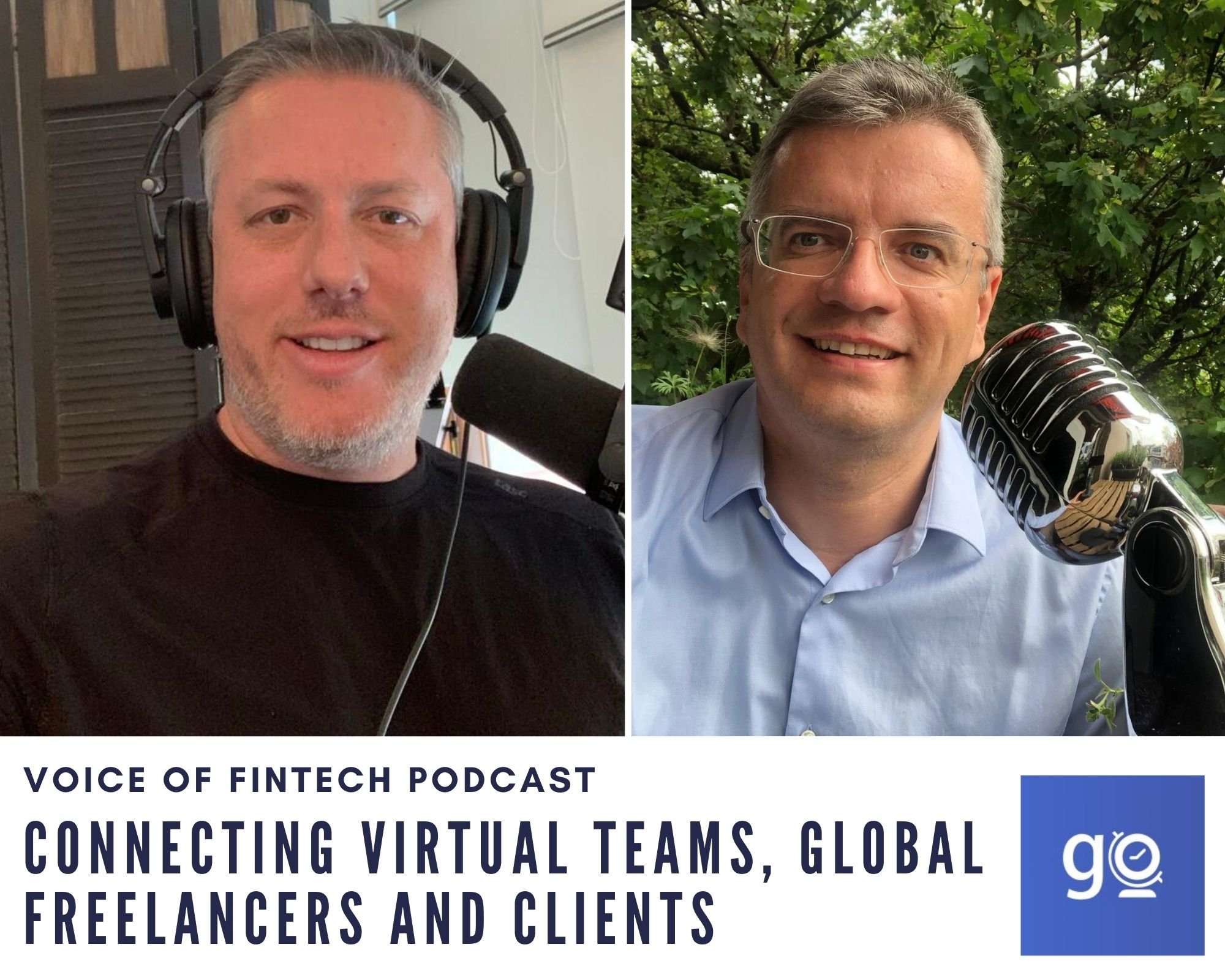May summary!
Rheinfall, Switzerland
In case you missed out on the May episodes of the Voice of FinTech podcast, here is your monthly roundup! You can listen to all the episodes on the Episodes pages of this website or when you subscribe to your favorite podcast apps under Subscribe.
Helping clients and the best freelance talent around the world to connect with Michael Brooks, founder and CEO of goLance
Michael Brooks, founder and CEO of goLance, spoke to Rudolf Falat, founder of the Voice of FinTech podcast, about the goLance freelance platform helping clients hire the best talent worldwide.
Specifically, they covered:
Michael's background - how did he get to what he does today
The future of work in terms of % of work done by freelancers and full-time jobs? Remote and onsite?
What does goLance provide? Why is goLance what freelancers need?
How are freelancers taken advantage of through typical payment methods? How can a digital currency or smart contract help?
goLance is a platform business, a two-sided marketplace. How did Michael overcome a cold start problem? Which side of the platform did he prioritize?
How goLance distinguishes itself from its competitors
The technology behind the goLance solution? Automation or more?
goLance's business model: fees and who pays them
How big is your team, and where are you based?
Favorite business book: On Wings of Eagles
The best way to reach out: goLance
We all exist to serve our community and not the other way around.
Perspectives on intercultural management and leadership with Elizabeth A. Tuleja, founder of the Intercultural Leader Institute
Elizabeth A. Tuleja, the founder of the Intercultural Leader Institute, spoke to Rudolf Falat, founder of the Voice of FinTech podcast, about the importance of intercultural management, leadership and communication skills essential for start-ups scaling up out of their home market.
In more detail, they covered:
Elizabeth's journey in intercultural management and leadership
As defined by Jim Collins in the book Built to last, visionary companies are the ones that outperformed their peers over decades. The key to their success was reliance on the core company ideology, balancing continuity and progress over decades. One of the features is a cult-like culture. Most of these companies are US-headquartered multinationals. So how do American companies handle working with different cultures when they have expanded worldwide?
Start-ups often struggle to survive and perhaps don't think about company culture until they grow up. Can you concisely and purposely create a company culture that you want? If yes, what's better and worse, company culture?
How do you do business in a world that seems to be in permanent crisis for at least the last two years?
Gender diversity: what can companies' leaders do to improve it further?
You wrote a post on LinkedIn recently that acceptance doesn't mean agreement. What does it mean and how do you make that clear across different cultures?
Where do you agree with Prof. Gert Hofstede regarding his views on intercultural management, and where do you differ?
Recommended further reading: Intercultural Communication for Global Business - How Leaders Communicate Success. 20 % OFF with SMA10 code
What's the best way to reach out and find out more? Follow Elizabeth on Linkedin or check out her website, the Intercultural Leader Institute.
Allure of gold with Stephen Flood, CEO of GoldCore
Stephen Flood, CEO of GoldCore, spoke to Rudolf Falat, founder of the Voice of FinTech podcast, about the importance of diversification of your assets and the benefits of owning gold and other precious metals compared to blockchain and cryptocurrencies.
In more detail, they covered:
Stephen's background - from banking to gold
Why should everyone own gold and silver, according to Stephen?
Are you a blockchain fan? Is Bitcoin a Ponzi scheme?
What does GoldCore provide?
Overall, how does GoldCore distinguishes itself from competitors?
What’s the key technology behind GoldCore?
International clients and precious metals - how does GoldCore deal with compliance?
Business model
Size of the team and locations
Critical elements of a successful entrepreneurship journey
Favorite business books: The ABCs of Gold Investing and Nonviolent communication
The best way to reach out: GoldCore
Business case for AI with Kavita Ganesan
Kavita Ganesan, an AI strategist, advisor, and educator, spoke to Rudolf Falat, founder of the Voice of FinTech podcast, about successfully implementing AI in business.
Here is what they covered:
Kavita's background and her journey to AI
How companies can get started with the adoption of AI, including concrete strategies with real-world examples
Steps to recognize AI opportunities that are most suitable for businesses
The Five Pillars for AI Preparation: Data Readiness, Cultural Readiness, Skills Readiness, Infrastructure Readiness, Budget Readiness
How to effectively implement AI solutions without hiring a team of data scientists, etc.
What is and isn't appropriate to expect from AI
The differences between software automation, robotic process automation (RPA), and AI
Why the success of AI is a combination of model success, business success, and user success
Examples of "Vanity AI" and why such pursuits are pointless
Why Machine Learning (ML) is the core driver of business AI applications
What a successful AI initiative looks like and how to ensure that AI models see more success than failure
Why companies are slow to adopt AI even though the need and desire to do so is there
The best way to reach out and find out more: kavita@opinosis.ai
Taking your payments experience to the next level with Lauren Martin, VP Legal at Dwolla
Lauren Martin, VP Legal at Dwolla, USA, spoke to Rudolf Falat, founder of the Voice of FinTech podcast, about improving America's payments infrastructure, privacy, regulations in this space, and more!
Here is what they talked about in more detail:
Lauren's background and journey to FinTech
What does Dwolla provide?
Are APIs on the back of the old payments infrastructure the final solution to America's payments pain points?
How does people's desire for privacy come into play regarding payments?
How does Dwolla distinguish itself from competitors?
Who are Dwolla's clients? Domestic or international payments?
What's the technology behind Dwolla's solution?
How do you make money?
The female/male ratio in law school vs. FinTech world - how does Lauren handle it?
Team and locations
What's your favorite business book: Amp it Up by Frank Slootman, Think Again by Adam Grant
The best way to reach out: Lauren (Gannon) Martin on LinkedIn
If you have suggestions for topics or guests on the show or have ideas about how to make this podcast better for you, please e-mail us at info@voiceoffintech.com. Alternatively, you can also leave a voicemail here.
Keep safe!
Sincerely,






